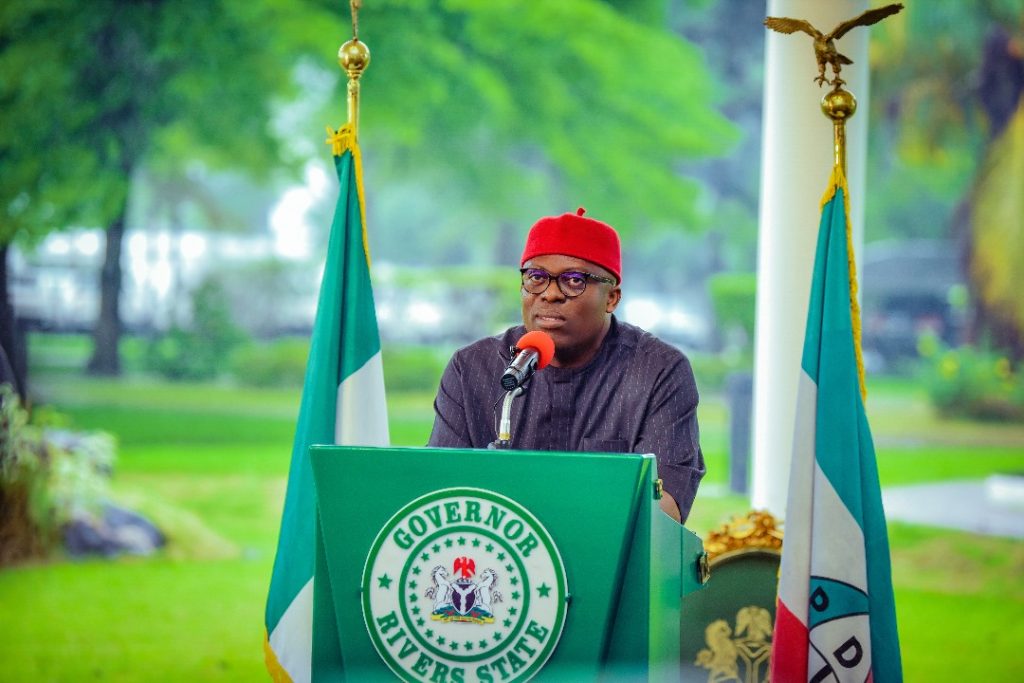
Samuel Omang
When Rivers State Governor Siminalayi Fubara finally stepped off the aircraft at Port Harcourt International Airport on Friday, the scene was nothing short of electric. Supporters thronged the tarmac, drums rolled, and chants of solidarity filled the air.
It was the first time in six months that the governor was back on home soil as the state’s chief executive — and his explanation for why he endured the period of emergency rule without legal challenge offered a glimpse into the delicate political balancing act he now faces.
From the outset of President Bola Tinubu’s emergency declaration, voices within Fubara’s camp had urged him to take a hard line. They argued that the suspension of democratic structures and installation of a sole administrator — former naval chief Vice Admiral Ibok-Ete Ibas — was unconstitutional, and that the courts should be used to reclaim his mandate.
Yet, on Friday, Fubara revealed that he chose the opposite path. “As your governor, I accepted to abide by the state of emergency declaration and chose to cooperate with Mr President and the National Assembly, guided by my conviction that the sacrifice was not too great to secure peace, stability, and progress of Rivers State,” he said in a statewide broadcast.
At the heart of the crisis was Fubara’s bitter rift with his once-powerful ally, Nyesom Wike, now Minister of the Federal Capital Territory. Their fallout had paralyzed the state House of Assembly, triggered impeachment moves, and even saw the Assembly complex go up in flames. Tinubu’s first peace deal collapsed, paving the way for the drastic emergency rule. Now, with the emergency lifted, Fubara in a statewide broadcast says the president’s second intervention has forced reconciliation.
“Our leader, Nyesom Wike, all members of Rivers State House of Assembly, and I as your governor have all accepted to bury the hatchet and embrace peace and reconciliation in the best interest of our dear state,” he declared.
Not everyone is convinced. Many Rivers residents remember the protests, arrests, and tension that defined the past six months, and some fear the peace may be cosmetic. Fubara acknowledged those concerns directly:
“Your fears are valid and understood. However, nothing has been irretrievably lost. There remain ample opportunities for necessary adjustments, continued reconciliation, and inclusiveness.”
Inside Government House, jubilation matched the street scenes. Civil servants danced, musicians played, and the governor toured his offices as if to reassert ownership of the space. But the real test lies ahead: the Rivers Assembly, now back in session under Speaker Martin Amaewhule, has demanded Fubara submit a new list of commissioners and the 2025 budget — a reminder that his power remains contested.
For now, Fubara projects calm. By refusing to fight the emergency rule in court, he has cast himself as a leader willing to sacrifice pride for peace. Whether this gamble cements his legitimacy or leaves him further boxed in by rivals will be decided not in the courts, but in the uneasy months of governance ahead.
